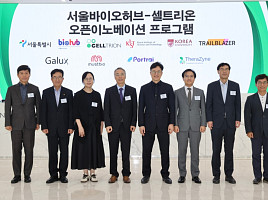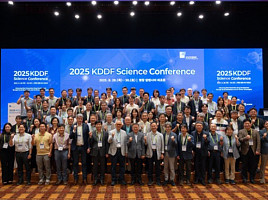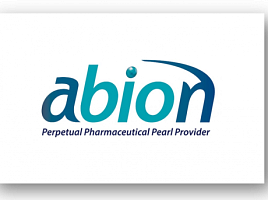기사본문
Samsung Bioepis's strategy to enter the US Biosimilar Market
입력 2019-11-04 08:39 수정 2019-11-24 07:35
by Jongwon Jang

Growth of the U.S. market of biosimilar will be on its way when the patent of Humira (Adalimumab), the therapeutic agent for autoimmune disease, expires in 2023. The preemptive enterprises of biosimilar is preparing for this opportunity to preoccupy the market share. It will truly win the market.
Christopher Hansung Ko, the President of Samsung Bioepis, recently met with BioSpectator in the ESMO (European Society for Medical Oncology) 2019 and made a statement regarding the prospect of biosimilar’ market in the United States.
Samsung Bioepis announced the result of Phase 3 Clinical Trial of Avastin Biosimilar in the conference and introduced the ‘Ontruzant’, the biosimilar of Herceptin, to global market through MSD.
He was preparing for the 2023 of Samsung Bioepis. Different from European market, the propagation of biosimilar in the biggest market of United States is slow. Despite the U.S. government consecutively provided policies encouraging biosimilar products, it is hard to find a product with market share of more than 10%.
President Christopher Hansung Ko explained the reason for the slow propagation of biosimilar in the U.S. market. It was due to the structural characteristic of the U.S. market of medicine led by ‘Payers’ including private insurance companies.
He said, “… current market disabled American Insurance Companies to control over hospitals just like they have the control over pharmacies …”, “… thereby the existing biosimilar such as Infliximab and EPO etc., which were approved for hospitals, were hard to attract attentions. If biosimilar sold in pharmacies appeared in the early days, the situation might have changed…”.
Therefore, the release of Humira Biosimilar in drug stores in 2023, the biosimilar recorded the biggest amount of sales, will act as a catalyst to open the U.S. market of biosimilar. President Christopher Hansung Ko forecasted, “… the release of Humira Biosimilar will promote rapid propagation of biosimilar in the U.S. market as good as that in the European market…”, “… it will take less than a year for biosimilar to occupy 60~70% of U.S. market of Humira …”. He also anticipated that a single product of Humira Biosimilar could enable leading pharmaceutical companies of biosimilars to accomplish 1 trillion KRW in sales.
Developers of Humira Biosimilars are preparing for the real fight against each other in the U.S. market on the patent expiry in 2023. ‘Imraldi (American name, Hadlima) of Samsung Bioepis, ‘Amgevita” of Amgen, ‘Cyltezo’ of Boehringer Ingelheim, and ‘Hyrimoz’ of Sandoz have acquired the approval from FDA, while Celtrion is conducting Global Phase 3 Clinical Trial with CT-P17.
Samsung Bioepis has launched the program to make inroads into U.S. market for Imraldi. The program includes diverse marketing strategies for the propagation of product in the market including direct sales. President Christopher Hansung Ko stated, “… a sales amount beyond predetermined level would enable direct sales of the product in the market…”, “… we have invited marketing specialist, Sang-jin Pak, the Managing Director of Marketing (Sales) who have worked for AstraZeneca Korea and had experience as President of GSK, Germany, to appraise the feasibility of direct sales …”.
2019 will be a year of significance for Samsung Bioepis preparing for the new jumping step ahead. Above all, the company expects the first black figures from the foundation of the company in 2012. Approximately 100,000 million KRW in red figure recorded last year turned to black figures of approximately 41,700 million KRW of operating income this year. The growth of Imraldi and Ontruzant, released into European market, is conspicuous. Thereby, the sales amount of 1 trillion KRW purely attributable to biosimilars developed by Samsung is forecasted.
President Christopher Hansung Ko introduced Imraldi as “… we have been investing in research and development of biosimilar continuously. Black figures are anticipated upon the increase in sales of biosimilar…”, “… for the case of Imraldi, which was released into market less than a year, it occupied a market share of the first rank in European market…”.
Samsun Bioepis started to make inroads into new and big market of biosimilar, the Chinese market. A partnership with 3S Bio, the Chinese Bio-Pharmaceutical Company, was developed for the clinical trial, acquisition of approval, and commercialization of the biosimilar of Avastin (SB8) in China. Besides, the company agreed on collaboration of clinical trials, acquisition of approval & permission, and sales of three kinds of biosimilar, SB3 (Herceptin Biosimilar), SB11 (Lucentis Biosimilar), and SB12 (Soliris Biosimilar), with C-Bridge Capital, a Chinese Venture Capital Operating Company.
President Christopher Hansung Ko further explained, “… up to now, we have acquired approvals of four respective biosimilar products from FDA and EMA. Besides, there are Avastin Biosimilar and Lucentis Biosimilar waiting in the queue. Now we have the capability of conducting global clinical trials. It would be significant in that we have gained a reputation in the corresponding fields…”.
In particular, results of 3-years follow-up of Herceptin Biosimilar ‘Ontruzant’ (Project Name, SB3) were announced at the conference of American Society of Clinical Oncology (ASCO) in May 2019, an event demonstrating the latent power of R&D of Samsung Bioepis. Researchers have found significantly higher survival rate of patients treated with Ontruzant than patients treated with the original drug. The reason behind the higher survival rate was attributed to changes in elements of antibody dependent cellular cytotoxicity (ADCC), the production problem of original drug. President Christopher Hansung Ko stated, “… this raises the issue of quality control for bio-pharmaceutical products which would have never been revealed unless biosimilars were not present…”, “ … the data of longer period of time, say 5 years, would be expected to enlarge the gap between original drug and biosimilar…”.
Samsung Bioepis introduced the new open-innovation model, the ‘Risk Sharing Partnership Model’, last year. Samsung Bioepis is exclusively in charge of conducting global trials, acquisition of approvals, and commercialization of competitive candidate materials of new drugs of Bio-Ventures. To entrain diverse domestic Bio-Ventures in the model, President Christopher Hansung Ko had meetings with them.
He explained, “… recent 3~4 enterprises I have met exhibited insights comparing to venture companies in the past where 9 venture companies among 10 venture companies appeared close to the level of imitating ideas in the United States of America…”, “… the relatively small companies appeared to have difficulties in quality control or scaling-up possibly due to the relatively small scale of these companies… ”.
He added, “… the attitudes of some companies, taking IPO as a means of ‘Exit’, should be changed. The IPO should be the starting point accelerating research and development further by inviting more investment from investors…”.







